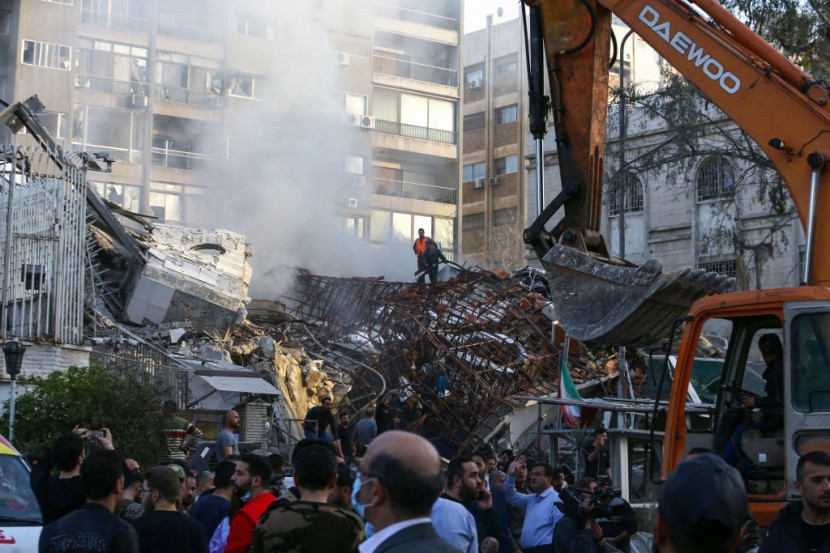
Iran fired on suspected attacking Israeli drones Friday morning, but so far Tehran's response to Israel's strikes inside the country has been relatively muted despite fears that tensions between the countries could erupt into all-out war, according to several media reports.
Iranian state TV played down the reported attack on a military base and nuclear site by Israel near the city of Isfahan in the wake of Iran's strikes on Israel last weekend. Officials also indicated there would be no retaliatory action in the hopes of averting a region-wide war, according to Reuters.
News media in both countries appeared to downplay the attack in what analysts told the New York Times was an attempt to de-escalate tensions.
The United Nations' nuclear watchdog, the International Atomic Energy Agency, called on social media for "extreme restraint from everybody." The agency noted there had been "no damage" to nuclear sites in Iran by the Israeli strikes, but it's continuing to monitor the situation.
IAEA can confirm that there is no damage to #Iran’s nuclear sites. DG @rafaelmgrossi continues to call for extreme restraint from everybody and reiterates that nuclear facilities should never be a target in military conflicts. IAEA is monitoring the situation very closely. pic.twitter.com/4F7pAlNjWM
— IAEA - International Atomic Energy Agency ⚛️ (@iaeaorg) April 19, 2024
Other countries were quickly drawn into an effort to avert further violence after days of urging Israel not to seek revenge following Iran's earlier attacks in retaliation for Israel's strike on Tehran's embassy in Syria earlier this month.
Italy's Foreign Minister Antonio Tajani said the G7 foreign ministers meeting in Capri plan Firday morning to "address the Iran issue and put priority attention of the Middle East," and reaffirmed the group's support for an Israeli ceasefire in Gaza."









